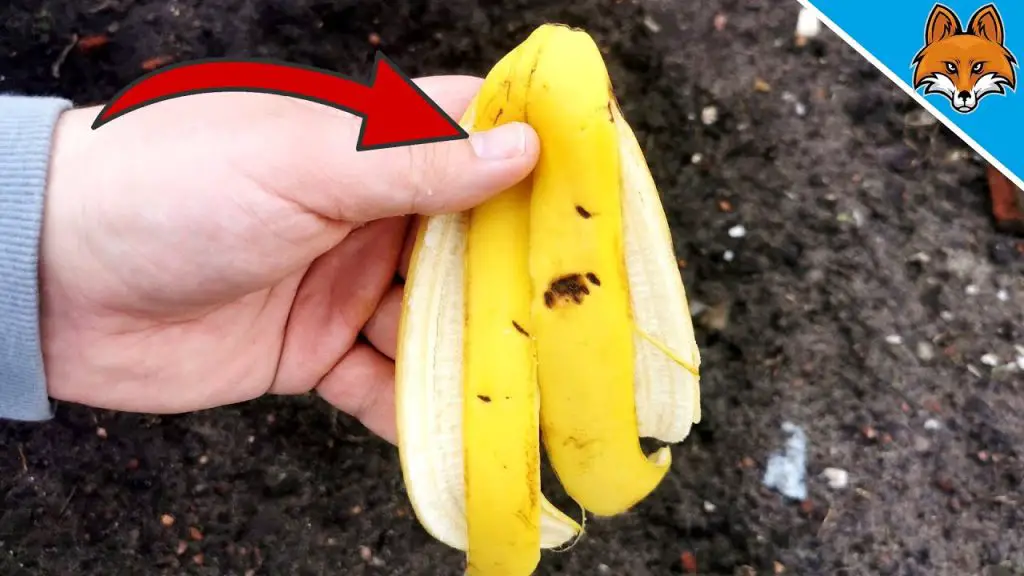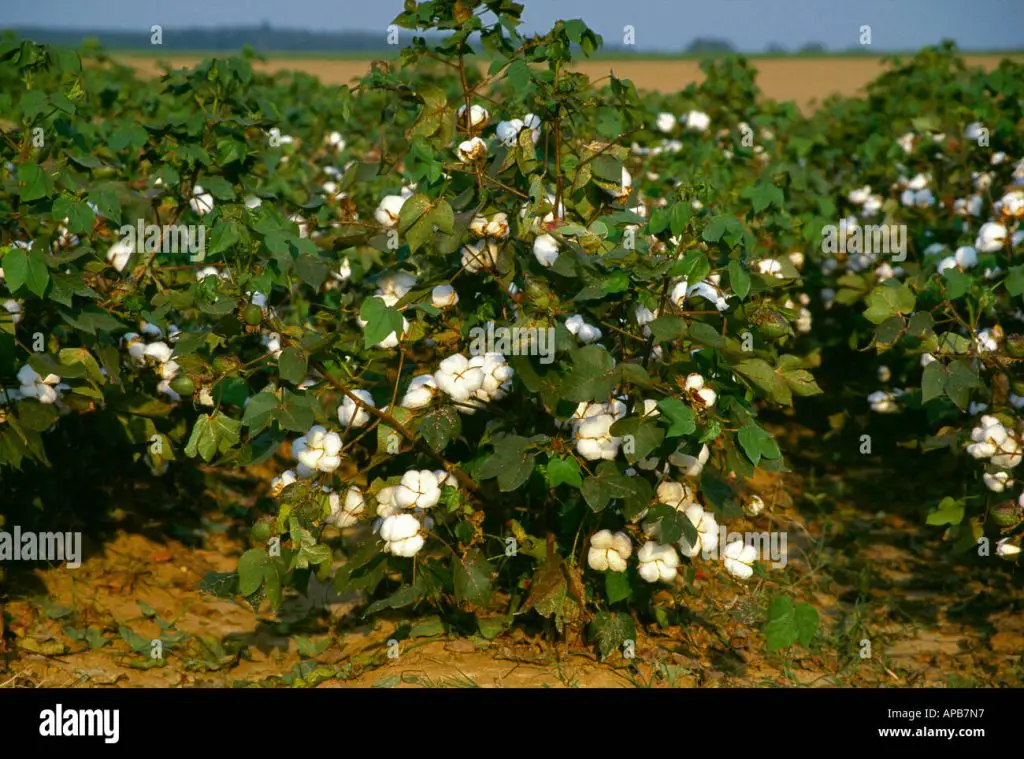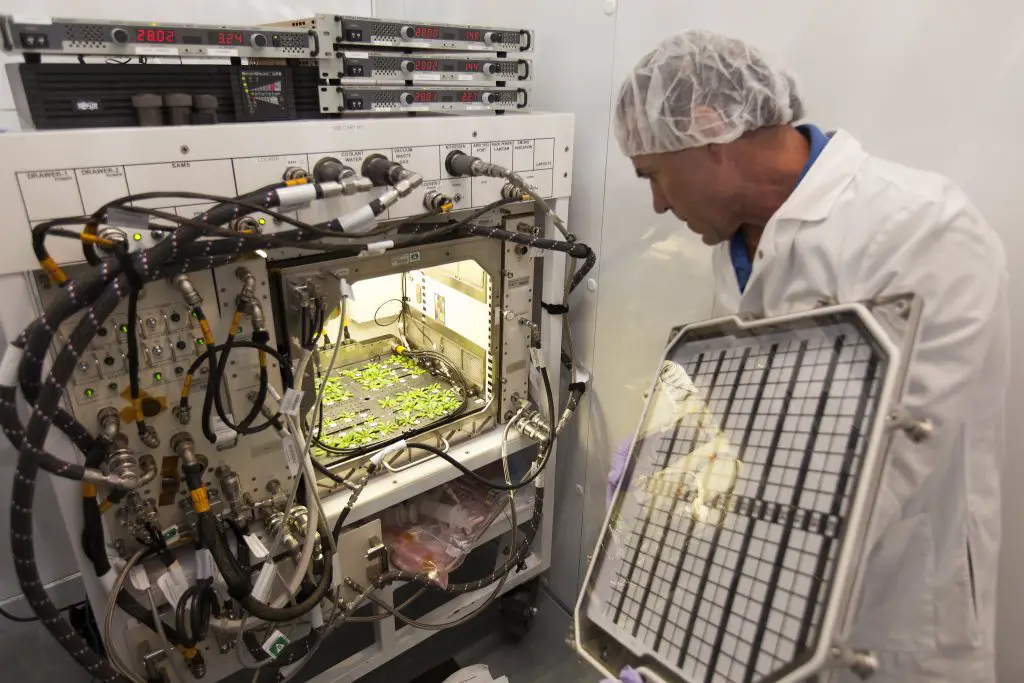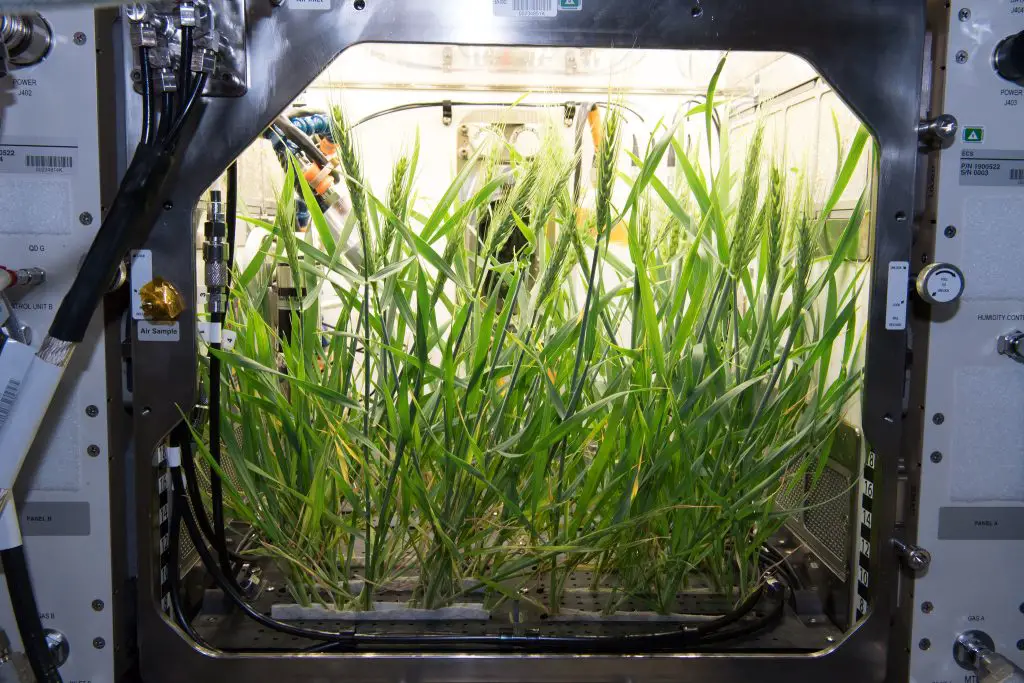When you plant peeled bananas in your garden, they can provide essential nutrients for the soil and plants. This article discusses the benefits of using banana peels as a natural fertilizer, including their high levels of potassium, phosphorus, and other minerals.
Additionally, it explores how to prepare and use banana peels in gardening, such as by making a compost tea or directly mulching them into the soil. By utilizing banana peels, you can promote healthy plant growth, improve soil fertility, and reduce waste in an eco-friendly manner.
So, before you discard those banana peels, consider giving them a second life in your garden.
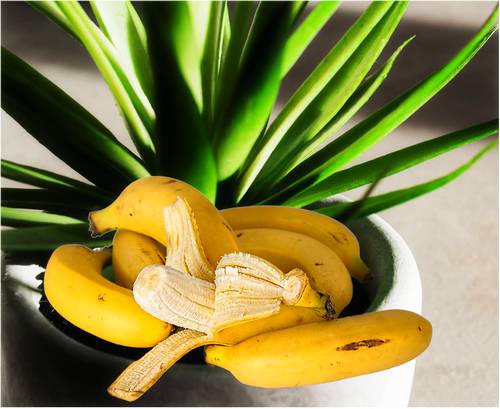
Credit: www.gardenmyths.com
Understanding The Impact Of Peeled Bananas On Garden Soil
Planting peeled bananas in your garden may sound like an unusual gardening tip, but you might be surprised by the impact it can have on your garden soil. Understanding the importance of organic matter and natural fertilizers is crucial for maintaining a healthy garden.
In this section, we’ll explore how peeled bananas can act as natural fertilizer, the nutritional benefits they provide to plants, and the decomposition process that occurs when they are added to the soil.
How Peeled Bananas Act As Natural Fertilizer
- Peeled bananas are rich in essential nutrients like potassium, phosphorus, and calcium, which are vital for plant growth and development.
- As the banana peels decompose, they release these nutrients into the soil, making them readily available for plants to absorb.
- This natural fertilizer helps to improve the overall fertility of the soil, enhancing plant growth and productivity.
The Nutritional Benefits Of Peeled Bananas For Plants
- Potassium: Bananas are a great source of potassium, an essential nutrient that aids in plant metabolism, enzyme activation, and water regulation.
- Phosphorus: Phosphorus is crucial for root development, flowering, and fruiting. Peeled banana peels contain significant amounts of phosphorus, which can benefit plants’ overall health.
- Calcium: Calcium plays a vital role in strengthening cell walls, promoting root growth, and preventing diseases. Banana peels provide a natural source of calcium for plants.
The Decomposition Process Of Peeled Bananas In Soil
- When you plant peeled bananas in your garden, the decomposition process begins. The peels break down gradually, allowing the nutrients to be released into the soil over time.
- Microorganisms, such as bacteria and fungi, play a crucial role in breaking down the banana peels. They decompose the organic matter, converting it into humus, a dark and nutrient-rich substance.
- As the banana peels decompose, they also enhance soil structure, promoting better water retention and aeration. This can improve root development and nutrient uptake for plants.
Peeled bananas have the potential to be an effective and eco-friendly natural fertilizer for your garden. Their nutrient content, including potassium, phosphorus, and calcium, benefits plants’ growth and overall health. By understanding the decomposition process, you can make the most of this organic matter, improving your garden soil and supporting the vitality of your plants.
So why not consider incorporating this unconventional gardening tip into your routine and see the positive impact it can have on your garden?
Enhancing Plant Growth: Tips For Using Peeled Bananas In Your Garden
Are you looking for a natural and cost-effective way to boost your plant growth? Look no further than your kitchen! Believe it or not, peeled bananas can work wonders in your garden. Don’t throw away those banana peels just yet.
Instead, incorporate them into your gardening routine and witness the fantastic results. We will explore three effective techniques for using peeled bananas to enhance the growth of your plants. So, let’s dive right in!
Incorporating Peeled Bananas As Mulch To Improve Soil Health
Using banana peels as mulch is a simple yet powerful way to improve the health of your soil. Here’s how you can do it:
- Chop the peeled banana into small pieces.
- Spread the banana peel pieces around the base of your plants, ensuring they don’t touch the stems directly.
- Gently work the peels into the top layer of soil.
- The nutrients present in the banana peels, such as potassium, phosphorus, and calcium, will gradually release into the soil, nourishing your plants.
- Additionally, the peels act as a natural weed suppressant and help retain moisture in the soil.
Diy Banana Peel Fertilizer: Simple Steps To Make Your Own
Creating your own banana peel fertilizer is a breeze. Follow these steps to make a nutrient-rich plant food:
- Collect a handful of banana peels and cut them into small pieces.
- Place the banana peel pieces in a jar and cover them with water.
- Let the mixture sit for at least 48 hours to allow the peels to decompose and release their nutrients into the water.
- After 48 hours, strain the liquid to separate it from the solid peels.
- Dilute the resulting liquid fertilizer by mixing it with water in a 1: 3 ratio.
- Use this banana peel fertilizer to water your plants every few weeks for an all-natural boost of nutrients.
Maximizing The Benefits Of Peeled Bananas With Composting
Composting is an excellent way to minimize waste and create nutrient-rich soil for your garden. Here’s how you can use banana peels in your compost pile:
- Cut the banana peels into small pieces to speed up the decomposition process.
- Add the peel pieces to your compost bin, alternating with other organic materials such as leaves, grass clippings, and vegetable scraps.
- Make sure to maintain the ideal balance of carbon and nitrogen-rich materials for optimal composting.
- Turn the compost pile regularly to aerate it and accelerate decomposition.
- Over time, the composting process will break down the banana peels, creating nutrient-dense compost that can be used to enrich the soil in your garden beds.
By incorporating peeled bananas as mulch, creating homemade banana peel fertilizer, and utilizing them in composting, you can harness the hidden potential of banana peels and unlock incredible plant growth in your garden. Give these tips a try and watch your plants thrive naturally and sustainably.
Your garden will thank you, and you’ll be amazed by the results!
Common Myths And Misconceptions About Peeled Bananas In The Garden
Debunking the myth: will peeled bananas attract pests to your garden?
Many gardeners have speculated about whether peeled bananas can attract pests to their garden. The idea that discarded banana peels may draw unwanted critters seems plausible, but is it really a legitimate concern? Let’s separate fact from fiction and uncover the truth about this common myth.
- Contrary to popular belief, peeled bananas do not necessarily attract pests to your garden. While it’s true that some insects are attracted to the smell of organic matter, the presence of a peeled banana alone is unlikely to create a significant pest problem. The scent of the banana peel may temporarily attract some pests, but they are usually more interested in ripe fruits than the discarded peels.
- It’s important to note that pests are drawn to gardens for various reasons, such as the availability of food, shelter, and water. While peeled bananas might attract a few insects, they are unlikely to be the main cause of pest infestations in your garden. Other factors, such as overripe fruits, decaying vegetation, or improper garden maintenance, are more likely to attract pests.
- Proper composting techniques can mitigate any potential attraction of pests to peeled bananas in your garden. Instead of simply leaving the peels on the soil surface, consider incorporating them into your compost pile. Composting breaks down organic matter, including banana peels, into nutrient-rich material that can benefit your plants without attracting pests.
Separating Fact From Fiction: Will Peeled Bananas Cause Weed Growth?
Another misconception regarding peeled bananas in the garden revolves around weed growth. Some gardeners worry that discarded banana peels may contribute to an influx of weeds in their garden beds. Let’s uncover the truth about this claim.
- Contrary to popular belief, peeled bananas do not directly cause weed growth in your garden. Weeds typically emerge from seeds that are already present in the soil, and they require specific conditions to germinate and thrive. These conditions include proper moisture levels, temperature, and sunlight exposure. The presence of a peeled banana alone is unlikely to provide the ideal conditions for weed seed germination.
- However, it’s worth mentioning that improperly disposed of banana peels can indirectly contribute to weed growth. If banana peels are left on the soil surface without proper composting or burial, they may create a favorable environment for weed seeds by acting as a mulch layer. To prevent this, ensure that you bury or compost the peels properly so that they do not provide a conducive environment for weed growth.
The Truth About Peeled Bananas And Acid-Loving Plants
Lastly, let’s explore the relationship between peeled bananas and acid-loving plants.
- Peeled bananas can be beneficial for acid-loving plants, such as blueberries, azaleas, and camellias. Banana peels contain potassium, phosphorus, and calcium, which are essential nutrients for plant growth. These nutrients can slowly leach into the soil when banana peels are used as a natural fertilizer or composted.
- To utilize banana peels for acid-loving plants, consider burying them directly in the soil near the plants’ roots or adding them to your compost pile. As the peels break down, they release nutrients that can help nourish the plants and promote healthy growth.
While there may be some concerns and myths surrounding peeled bananas in the garden, it is essential to separate fact from fiction. Peeled bananas alone are unlikely to attract pests or cause weed growth. Instead, proper composting techniques and responsible disposal can ensure their benefits are maximized without any negative consequences for your garden.
So, feel free to embrace the potential of banana peels as a natural and nutrient-rich addition to your gardening practices.
Novel Ways To Use Peeled Bananas In The Garden
There are many interesting ways to make use of peeled bananas in your garden. From watering solutions to natural pesticides and even garden art, banana peels can play a versatile role in your gardening endeavors. We will explore some novel ways to use peeled bananas in the garden and unlock their potential for enhancing plant growth and overall garden health.
Banana Peel Tea: Unlocking The Power Of Banana Peels For Watering
- Banana peel tea is a simple and effective way to utilize the nutrients found in banana peels for watering your plants.
- To make banana peel tea, you will need to chop up banana peels into small pieces and place them in a container filled with water.
- Let the mixture sit for a few days, allowing the water to soak up all the beneficial nutrients from the peels.
- Once the tea is ready, strain out the peel pieces and use the nutrient-rich liquid to water your plants.
- Banana peel tea is particularly beneficial for plants that need an extra boost of potassium, such as flowering plants and fruit trees.
- Regularly using banana peel tea can help improve plant health, stimulate root growth, and enhance overall plant vigor.
Creative Uses For Banana Peels As Natural Pesticides
- Banana peels can also be used as a natural and chemical-free way to protect your garden from pests.
- One method is to place small pieces of banana peel around vulnerable plants as a deterrent for pests like aphids and slugs.
- The slippery texture of the peels and the compounds they contain can help repel insects and discourage them from feeding on your plants.
- Another way to use banana peels as a pesticide is by making a repellent spray. Simply blend banana peels with water in a blender and strain the mixture.
- Transfer the liquid into a spray bottle and apply it to your plants to ward off pests.
- This natural pesticide is safe for the environment and can effectively keep pests at bay, ensuring your plants remain healthy and thriving.
Unconventional Ways To Repurpose Peeled Bananas For Garden Art
- Banana peels can also be repurposed in creative ways to add a touch of artistry to your garden.
- Consider using dried banana peels for crafting unique sculptures or figurines that can be displayed in your garden.
- You can also use banana peels as natural dyes for fabrics or as ingredient in diy fertilizers.
- The versatility of banana peels opens up a world of possibilities when it comes to garden art and creative expression.
- By repurposing peeled bananas in these unconventional ways, you not only minimize waste but also lend a unique and artistic element to your garden space.
So, the next time you peel a banana, don’t discard those peels. Instead, harness their power by making banana peel tea, repelling pests naturally, or adding an artistic touch to your garden. These novel uses for peeled bananas will not only benefit your plants but also add a fun and eco-friendly element to your gardening experience.
Frequently Asked Questions On What Happens When You Plant Peeled Bananas In Your Garden
Can You Plant Peeled Bananas Directly In Your Garden?
Yes, you can plant peeled bananas directly in your garden. The peels act as a natural fertilizer, providing potassium and other nutrients to the soil. However, it is recommended to bury them a few inches deep to prevent animals from digging them up.
How Long Does It Take For A Banana Peel To Decompose In The Garden?
Banana peels take about 2 to 5 weeks to decompose in the garden, depending on the environmental conditions. If you want them to break down faster, you can cut them into smaller pieces or blend them before burying.
Will Planting Peeled Bananas Attract Pests To The Garden?
Planting peeled bananas may attract pests such as fruit flies, ants, or raccoons to your garden. To prevent this, make sure to bury the peels a few inches deep and cover them with soil. Additionally, maintaining good garden hygiene and removing any decaying fruit regularly can help minimize pest problems.
Can I Use Peeled Bananas As A Natural Fertilizer For Potted Plants?
Yes, you can use peeled bananas as a natural fertilizer for potted plants. Burying small chunks of the peels in the potting soil will release nutrients over time, promoting healthy plant growth. Just ensure the peels are buried deep enough to discourage pests and cover them with a layer of soil.
Are There Any Other Benefits Of Using Peeled Bananas In The Garden?
Besides acting as a natural fertilizer, peeled bananas in the garden can also help improve soil moisture retention and organic matter content. They can enhance the microbial activity in the soil and provide a slow-release source of nutrients, benefiting the overall health of your garden plants.
Conclusion
Planting peeled bananas in your garden can have surprising benefits for your plants. The potassium and other nutrients found in bananas can help promote healthy growth and enhance the overall vitality of your garden. The decomposing banana peel releases nutrients slowly, nourishing your plants over time.
Additionally, the peel acts as a natural compost, enriching the soil and attracting beneficial organisms. This eco-friendly practice not only eliminates food waste but also reduces the need for chemical fertilizers, making it a sustainable gardening method. So, next time you have some leftover peeled bananas, consider giving them a second life in your garden.
Your plants will thank you with lush foliage and vibrant blooms, bringing beauty and joy to your outdoor space. Embrace this simple and cost-effective technique to create a thriving garden oasis right in your own backyard.
